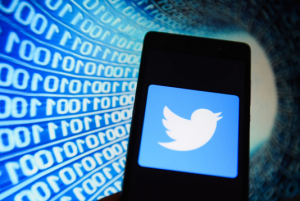Against the Social-Media Mob
< < Go Back
Students examine the online phenomenon and what it means for U.S. democracy.
“Never underestimate the power of stupid people in large groups,” said George Carlin. Fortunately for Carlin, he died before the advent of the now-canonical large group of stupid people: the social-media mob.
Social media seems, prima facie, good for democracy; to democratize is to make something accessible to everyone, and for our purposes, this something is political discourse. Social media seemed destined to bring about Jürgen Habermas’s public sphere, John Rawls’s deliberative democracy, and Oliver Wendell Holmes’s marketplace of ideas, a prized forum for debate and discussion, open to all.
To wake up from the democratic dream of social media, I recommend visiting the Twitter page of any halfway-prominent political figure. Most instructive are the replies to their posts, supplied by ordinary citizens like you and me, engaging in free, open and direct discussion with each other and the gatekeepers of power. Witness hordes of what are likely otherwise nice people—shielded by anonymity, informed by echo chambers, restricted by character counts, incentivized to provoke shock—give in to their feral impulses and vomit abusive nonsense onto the web for a world-wide audience.
More From The Wall Street Journal (subscription required):




